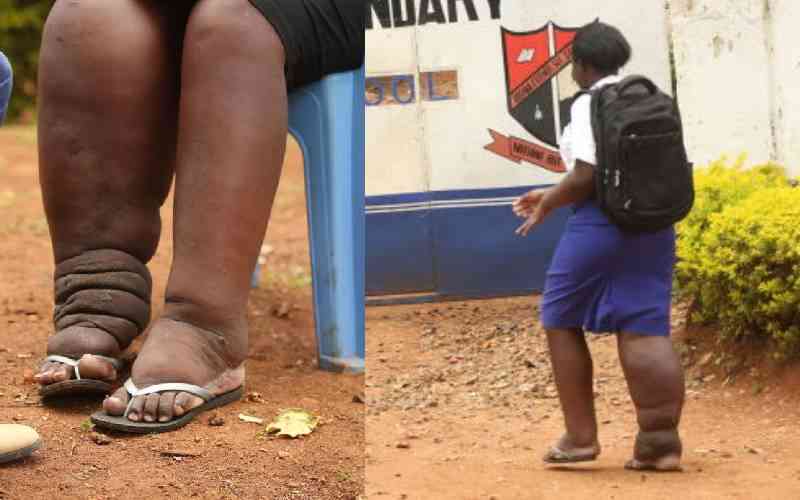×
The Standard e-Paper
Smart Minds Choose Us

Millyanne Mmbone was putting on her school shoes in 2017 when she noticed slight swelling on her right leg.
The Form Four student at Vigina Secondary School in Vihiga County thought it was strange but because she was running late for school, she did take time to check how serious it was.